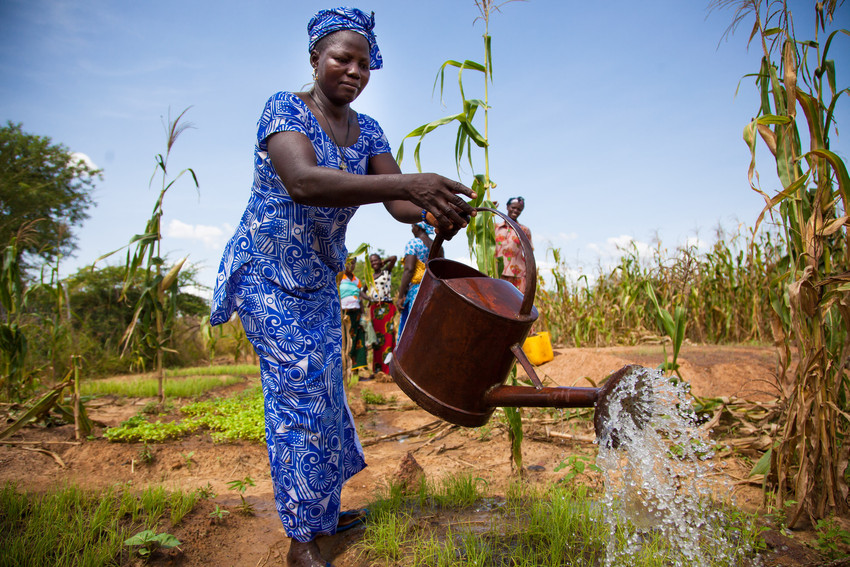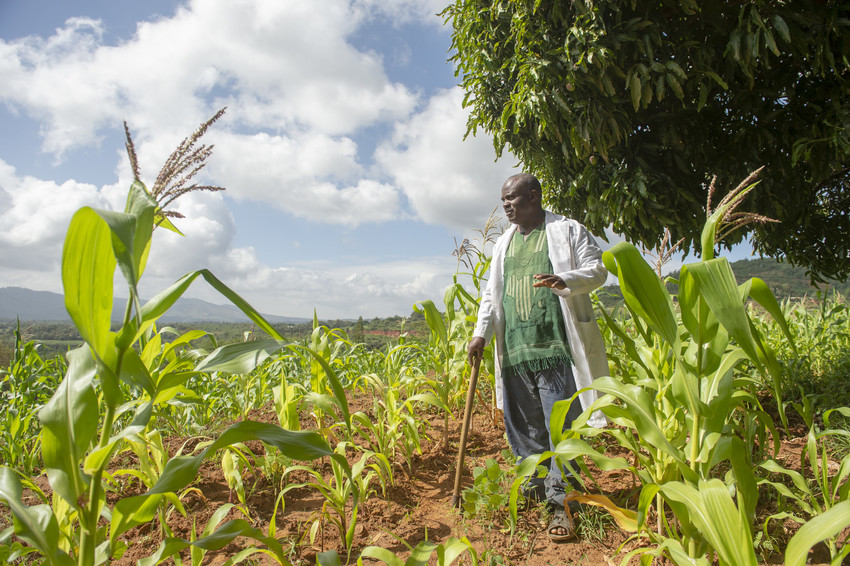[Individual articles from the Spring 2020 issue of Intersections will be posted on this blog each week. The full issue can be found on MCC’s website.]
Part of MCC’s strategic plan for the coming five years is to “design and assess MCC’s program and operations in light of our commitment to care for God’s creation and accompany marginalized communities harmed by climate change.” Why is this important? Put simply, the people that Jesus called us to serve and walk with are the ones on the receiving end of disasters caused by a changing climate. The poor, the vulnerable, the people without a safety net—these are the folks who suffer when droughts happen, when sea levels rise, when mosquitos carrying disease expand their range.
While none of us can escape severe weather, some of us are better able to respond. As Peter Dula, associate professor of religion and culture at Eastern Mennonite University, observed in a recent summary of Anabaptist approaches to creation care: “Holland has dikes. Bangladesh has floods.”
Scientists’ predictions about a rapidly changing climate are proving correct. The climate crisis, meanwhile, is affecting the vulnerable communities in which MCC and its partners work. The climate crisis means not only more numerous and intense extreme weather events, like hurricanes, floods and droughts—the climate crisis is also one driver (among others) of mass migration and conflict.
MCC works with vulnerable communities to further develop their capacity to adapt to the climate crisis by scaling up innovations that enable them to become more resilient to climate and environmental changes. In Zimbabwe, for example, MCC supports resilient and agroecologically sound intercropping farming systems that increase food security through farmer-led cereal legume trials and by growing drought-resistant crops using soil and water conservation techniques like conservation agriculture. Building resilient farmer-driven agriculture extension systems increases farmers’ capacity to innovate, enhances improved soil fertility, diversifies production and improves human and animal nutrition.

Through these innovative, sustainable, affordable, accessible, replicable and resilient intercropping farming systems, smallholder farmers can minimize the impact of climate-induced pests such as the fall armyworm, the maize stalk borer and invasive striga weeds. Using so-called “stinky sticky” technology, based on in-depth understanding of chemical ecology, agrobiodiversity and plant-to-plant and insect-to-plant interactions, farmers plant a cereal crop with a repellent leguminous intercrop (stinky) such as Desmodium uncinatum, with an attractive trap plant such as Napier grass (sticky) planted as a border crop around the intercrop. Through this technology, vulnerable communities can control climate-induced pests and weeds in environmentally friendly ways that build community solidarity.
While resilience and adaptive capacity building are the preferred means to address the impact of climate change, MCC recognizes that sometimes the impacts are far beyond the coping capacities of affected communities. In the Afar region of Ethiopia the impact of climate change is so severe that growing crops is not possible. The pastoralists in these communities survive by keeping animals such as goats and camels. Unfortunately, the extreme chronic droughts due to climate change in the Afar region are leading to human and animal thirst, chronic hunger, malnutrition and sometimes death.
We must connect the dots between climate change and our theology of peacemaking. Simply put, our lifestyle, and our addiction to fossil fuels, do violence to the most vulnerable and marginalized people around the globe.
MCC is responding in Afar by trucking in water for human and animal consumption, providing emergency fodder and vaccines for animals alongside food assistance for humans. MCC is also supporting sustainable innovative projects that improve water access. So, for example, MCC is working with a local partner called APDA on constructing dome-shaped steam wells that harvest water from the volcanic steam that moves up through a fault line in the earth and escapes through vents.
While all people feel the impact of the climate crisis, poor women commonly face higher risks and greater burdens from climate change. Restricted land rights, limited channels to influence political decision-making spheres and lack of access to financial resources, training and technology all hinder women’s ability to adapt to climate change. MCC works to ensure that women have access to and control and decision-making power over project resources. MCC also works with men who champion gender equality and who create safe spaces for men in their community to cultivate healthy masculinities, helping to ensure that women’s empowerment efforts are successful and well-received. MCC recognizes that tapping into the wisdom and unleashing the knowledge, experience and capability of women are essential to craft effective climate change solutions for the benefit of all.
In Canada and the U.S., MCC undertakes climate change mitigation efforts, including pressing the church to embrace simple living and care for God’s creation and to pay attention to the impacts of the climate crisis, particularly on the poor and vulnerable. MCC also advocates for government policies that seek to slow down the climate crisis. MCC recently partnered with Eastern Mennonite University and Goshen College in founding the Center for Sustainable Climate Solutions to advance thinking and action within faith communities on climate change mitigation.

The time has come for us, as Anabaptists, to recognize that a faithful response to our brothers and sisters around the world means addressing the root causes of our climate crisis. We must connect the dots between climate change and our theology of peacemaking. Simply put, our lifestyles, including our addiction to fossil fuels, do violence to the most vulnerable and marginalized people around the globe. As is abundantly clear throughout the biblical narrative, God cares about all of creation, especially the most vulnerable among us. May we do the same.
Eric Kurtz is executive director for MCC Great Lakes. Vurayayi Pugeni is area director for MCC programs in southern Africa.
Theme issue on “Responding to Climate Change.” Intersections: MCC Theory and Practice
Quarterly. 5/3 (Summer 2017). Available at https://mcc.org/media/resources/7125.
Website: Center for Sustainable Climate Solutions
Dula, Peter. “Anabaptist Environmental Ethics: A Review Essay.” Mennonite Quarterly Review. 94/1 (January 2020): 7-37.
